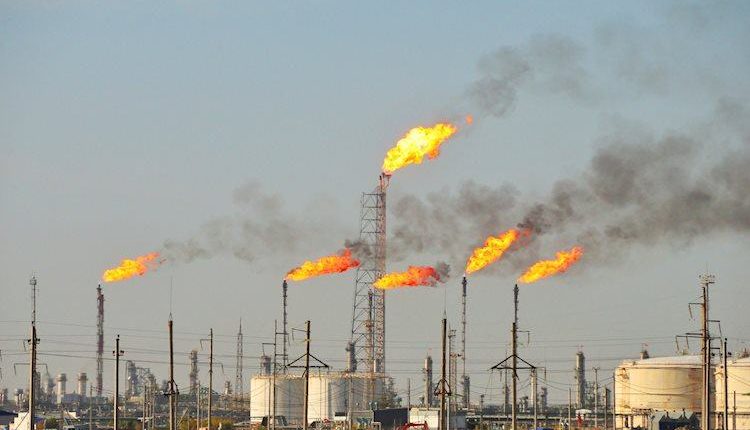- Natural Gas prices jump to $3.42 as tension builds around possible invasion.
- The US Dollar reclaims its status as King Dollar as US yields flirt with 5% again.
- Natural Gas prices could jump rapidly once reports are issued that Israel has started its ground offensive.
Natural Gas has recovered in the wake of rumours and now firm confirmation that Israel is ready to go ahead with its ground assault. Despite several visits from a variety of world leaders asking for more time to have a human corridor, Israel has drawn up plans and is positioning troops and material. For Gas prices it means that the previous risk premium that got priced out over the past few days, now needs to be priced in again, and gas prices could be sent soaring towards $3.60 again and possibly higher.
Meanwhile, the US Dollar (USD) is raking in investors’ money again as a flight to safe haven is happening. Although US yields are soaring back to 5%, it looks as if markets are getting adjusted to these high rates and are rather dealing with the pain of high yields instead of having their money safely tucked away in case the Israeli ground offensive sparks a wider war in the region. This means the US Dollar Index (DXY) will remain elevated for longer.
Natural Gas is trading at $3.41 per MMBtu at the time of writing.
Natural Gas news and market movers
- Israeli Prime Minister Benjamin Netanyahu confirmed a ground invasion into Gaza is prepared. This comes despite the request from US President Joe Biden to delay a full incursion in the region.
- Recent weather models and extrapolations into the EU gas storage facilities, shows that the EU could end the winter with still 44% of gas reserves left.
- The weekly US Natural Gas Storage Change for last week is due to be released from the Energy Information Administration (EIA) around 14:30 GMT. Expectations are for a draw down to 79 from 97.
- With rumours mounting of an Israeli invasion, together with a drawdown in US gas storages, some short term bullish support in Natural Gas prices could send nearterm futures soaring higher in price.
Natural Gas Technical Analysis: Potential risk of squeeze higher
Natural Gas was sinking lower the past few days, pricing out the risk premium that was valued for any possible ground invasion that could pressure the whole Middle Eastern area and enlarge any proxy war possibilities. Overnight Israeli Prime Minister Netanyahu had put the ground offensive back on the table, which means gas prices need to scramble to price back in the risk premium. Expect with headlines around this topic, to see quick sprints higher in gas prices over the coming days and weeks.
From a purely technical perspective, gas prices broke back above the topside trend line identified earlier, near $3.37, on Wednesday. Expect to see a continuation higher from here with the next level on the upside at $3.60. Should a big ground invasion take place and several countries start to choose sides, expect a very quick squeeze higher to $4.32, the high of 2023.
On the downside, the trend channel should try to act as support again, near $3.37. Natural Gas prices could fall to $3.07, with that orange line identified from the double top around mid-August. Should the drop become a broader sell-off, prices could sink to $3.03, at the 55-day Simple Moving Average.
XNG/USD (Daily Chart)
Natural Gas FAQs
Supply and demand dynamics are a key factor influencing Natural Gas prices, and are themselves influenced by global economic growth, industrial activity, population growth, production levels, and inventories. The weather impacts Natural Gas prices because more Gas is used during cold winters and hot summers for heating and cooling. Competition from other energy sources impacts prices as consumers may switch to cheaper sources. Geopolitical events are factors as exemplified by the war in Ukraine. Government policies relating to extraction, transportation, and environmental issues also impact prices.
The main economic release influencing Natural Gas prices is the weekly inventory bulletin from the Energy Information Administration (EIA), a US government agency that produces US gas market data. The EIA Gas bulletin usually comes out on Thursday at 14:30 GMT, a day after the EIA publishes its weekly Oil bulletin. Economic data from large consumers of Natural Gas can impact supply and demand, the largest of which include China, Germany and Japan. Natural Gas is primarily priced and traded in US Dollars, thus economic releases impacting the US Dollar are also factors.
The US Dollar is the world’s reserve currency and most commodities, including Natural Gas are priced and traded on international markets in US Dollars. As such, the value of the US Dollar is a factor in the price of Natural Gas, because if the Dollar strengthens it means less Dollars are required to buy the same volume of Gas (the price falls), and vice versa if USD strengthens.
Read the full article here

